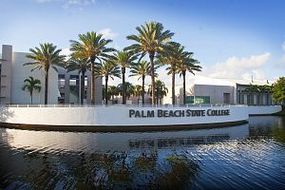By Devin Mitchell

Florida students are taking a stand against restrictive voting laws and organizing for pro-suffrage practices and policies.
Florida has been a critical battleground in the voting wars. In 2011, the state legislature and Governor Rick Scott passed H.B. 1355. The 128-page bill made sweeping changes to the state’s election laws. Passed along party lines, the bill shrank the early voting window, weakened absentee voting, and made it more difficult for people with new addresses to vote. The Scott administration also made attempts to purge thousands of names from the voter rolls in 2012.
Florida has been a critical battleground in the voting wars. In 2011, the state legislature and Governor Rick Scott passed H.B. 1355. The 128-page bill made sweeping changes to the state’s election laws. Passed along party lines, the bill shrank the early voting window, weakened absentee voting, and made it more difficult for people with new addresses to vote. The Scott administration also made attempts to purge thousands of names from the voter rolls in 2012.
Many of these changes have affected young people at the polls, spurring students to lead the charge for voting rights in Florida. Two weeks ago, we reported that the Florida State University student government had passed a Right to Vote Resolution targeting H.B. 1355 and calling for an explicit constitutional right to vote.
FSU is not alone. The Student Government Association at Palm Beach State College (PBSC) has also passed a resolution for the repeal of H.B. 1355 and the establishment of a state task force on voter access.
“Natural greater access to voting is a solution [for students],” said Yury Konnikov, president of the Florida Initiative for Electoral Reform (FLIER). “Particularly in light of cynical legislative efforts to discourage that constituency from voting.”
Access became a rallying point for students after the Florida Division of Elections, which is run by a Governor Rick Scott appointee, denied the University of Florida (UF) an early voting site on campus in the 2014 municipal elections. This decision motivated students, like Darlene Rodick, to take action. Rodick, a member of the PBSC Student Government Association, voiced support for same-day voter registration and putting early voting locations on campuses.
“Student governments are constantly trying to get students registered to vote and to encourage voting,” Konnikov said. “At the same time, they’re being criticized by the establishment for having an apathetic constituency.”
Taking advocacy efforts one step further, the resolution called on Congress to enshrine a right to vote in the U.S. Constitution, which has the potential to preclude restrictive voting laws in states. Since there is no right to vote in the Constitution, strict scrutiny is not applied to changes in state voting laws. If that changed, courts would have to find a compelling state interest to maintain laws that impede voting rights.
Students are not alone in seeking structural change to protect voting rights. Proposed legislation in the Florida legislature has the same goal. House Bill 1073 would strengthen the right to vote in Florida’s state constitution. House Memorial 1283 would urge Congress to propose to the states an amendment to the U.S. Constitution for an affirmative right to vote.
______
Palm Beach State College’s resolution was modeled on FairVote’s Promote Our Vote project’s resources. Students received help organizing from the Florida Initiative for Electoral Reform. Learn about other communities that are taking proactive steps to improve voting at PromoteOurVote.com, and find out how you can get involved in your community.
FSU is not alone. The Student Government Association at Palm Beach State College (PBSC) has also passed a resolution for the repeal of H.B. 1355 and the establishment of a state task force on voter access.
“Natural greater access to voting is a solution [for students],” said Yury Konnikov, president of the Florida Initiative for Electoral Reform (FLIER). “Particularly in light of cynical legislative efforts to discourage that constituency from voting.”
Access became a rallying point for students after the Florida Division of Elections, which is run by a Governor Rick Scott appointee, denied the University of Florida (UF) an early voting site on campus in the 2014 municipal elections. This decision motivated students, like Darlene Rodick, to take action. Rodick, a member of the PBSC Student Government Association, voiced support for same-day voter registration and putting early voting locations on campuses.
“Student governments are constantly trying to get students registered to vote and to encourage voting,” Konnikov said. “At the same time, they’re being criticized by the establishment for having an apathetic constituency.”
Taking advocacy efforts one step further, the resolution called on Congress to enshrine a right to vote in the U.S. Constitution, which has the potential to preclude restrictive voting laws in states. Since there is no right to vote in the Constitution, strict scrutiny is not applied to changes in state voting laws. If that changed, courts would have to find a compelling state interest to maintain laws that impede voting rights.
Students are not alone in seeking structural change to protect voting rights. Proposed legislation in the Florida legislature has the same goal. House Bill 1073 would strengthen the right to vote in Florida’s state constitution. House Memorial 1283 would urge Congress to propose to the states an amendment to the U.S. Constitution for an affirmative right to vote.
______
Palm Beach State College’s resolution was modeled on FairVote’s Promote Our Vote project’s resources. Students received help organizing from the Florida Initiative for Electoral Reform. Learn about other communities that are taking proactive steps to improve voting at PromoteOurVote.com, and find out how you can get involved in your community.
